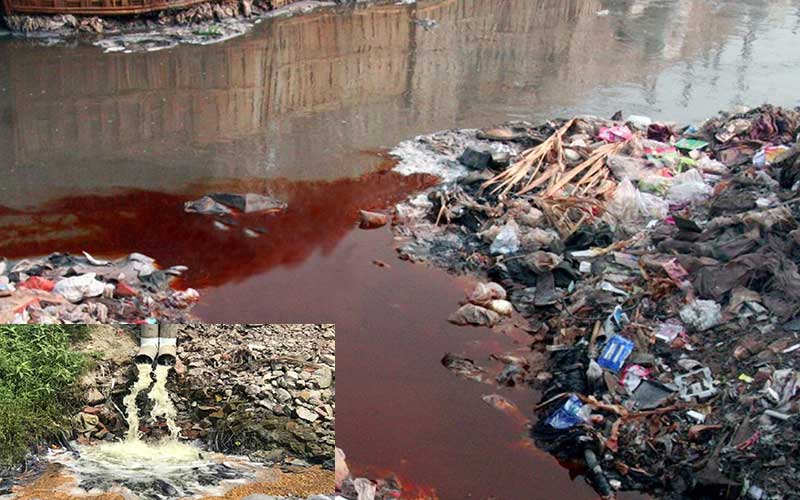Comprehensive Liquid Waste Disposal: Solutions for Houses and Organizations
Comprehensive Liquid Waste Disposal: Solutions for Houses and Organizations
Blog Article
Comprehending the Comprehensive Refine of Fluid Garbage Disposal: Ideal Practices and Environmental Impact Factors To Consider
The management of liquid waste disposal is a multifaceted issue that calls for a detailed understanding of numerous finest methods and their connected environmental effects. From the types of fluid waste generated to the approaches employed for collection, treatment, and last disposal, each step plays a critical duty in protecting ecological communities and public health.
Kinds Of Fluid Waste
Comprehending the numerous types of fluid waste is important for reliable management and disposal methods. Fluid waste can be broadly categorized right into several types, each calling for distinct handling and treatment techniques.
Industrial liquid waste usually includes hazardous materials, consisting of heavy steels, solvents, and chemicals, produced during making procedures. These wastes necessitate rigorous governing conformity to safeguard human health and wellness and the atmosphere. Domestic fluid waste primarily refers to wastewater produced from households, including sewage and greywater, which, although much less hazardous, can still posture significant risks if incorrectly handled.
Agricultural fluid waste, consisting of drainage from ranches, frequently consists of fertilizers and pesticides that can cause ecological destruction otherwise dealt with properly. Medical fluid waste, created from medical care centers, consists of polluted liquids such as bodily fluids and chemicals, requiring specialized disposal methods to avoid infection and environmental contamination.
Finally, oil and grease waste, normally generated by dining establishments and vehicle sectors, can trigger serious blockages in sewer systems otherwise taken care of effectively. Understanding these categories facilitates targeted strategies for treatment, conformity with regulations, and reliable disposal approaches, inevitably advertising ecological sustainability and public wellness safety.

Collection Methods
Effective collection techniques are essential for the appropriate monitoring of fluid waste, ensuring that it is gathered safely and effectively before therapy or disposal. Various techniques are employed depending on the sort of liquid waste produced, the volume, and the certain characteristics of the waste.
One common technique is using devoted collection tanks or sumps, which are made to catch fluid waste at the source. These systems typically incorporate pumps that assist in the transfer of waste to bigger storage space containers or treatment centers. Additionally, mobile collection systems furnished with vacuum innovation are employed in circumstances where waste is generated periodically or in hard-to-reach locations.
For industrial setups, closed-loop systems can efficiently decrease spills and leaks, permitting the healing and reuse of fluid waste. It is likewise necessary to educate workers on correct collection methods to alleviate dangers related to unsafe materials.
Furthermore, implementing regular upkeep routines for collection devices guarantees optimal performance and safety and security. The integration of sophisticated tracking systems can boost collection performance by providing real-time data on waste degrees and possible threats. In general, reliable collection approaches are foundational to lasting liquid waste administration techniques.
Therapy Procedures
Therapy procedures play a vital role in the management of liquid waste, transforming potentially dangerous materials into reusable sources or secure effluents - liquid waste disposal. These procedures can be broadly categorized right into physical, chemical, and organic methods, each tailored to resolve details impurities existing in the waste stream
Physical therapy techniques, such as sedimentation and filtering, work by eliminating suspended solids and particulate issue. These methods are usually the initial step in the treatment chain, efficiently decreasing the tons on subsequent procedures. Chemical therapies involve making use of reagents to neutralize dangerous compounds, speed up hefty metals, or oxidize natural pollutants, thus boosting the safety of the effluent.
Organic therapy processes, including activated sludge systems and anaerobic food digestion, take advantage of the natural capacities of bacteria to degrade raw material. These methods are specifically efficient for wastewater including naturally degradable pollutants. Advanced therapy modern technologies, such as membrane layer filtering and progressed oxidation processes, are increasingly used to achieve greater degrees of purification.
Including a combination of these treatment techniques not just ensures conformity with governing requirements but likewise advertises ecological sustainability by recovering important sources from fluid waste.
Disposal Options
Just how can organizations make sure the secure and responsible disposal of fluid waste? Efficient disposal alternatives are vital for securing public health and the atmosphere. The primary methods include land disposal, therapy, and incineration adhered to by discharge into municipal wastewater systems.
Land disposal involves the cautious control of fluid waste in assigned garbage dumps, ensuring that it does not leach into surrounding soil you could look here or water. Incineration, on the various other hand, topics fluid waste to heats, converting it into ash and gases, which need correct filtration to reduce exhausts. This method appropriates for unsafe wastes that can not be treated through conventional ways.
In situations where fluid waste can be dealt with, companies might choose organic or chemical treatment procedures to reduce the effects of hazardous parts before discharging the dealt with effluent right into local systems. This path usually lines up with regulatory requirements, ensuring that the effluent fulfills safety and security standards.
Ultimately, companies have to carry out thorough evaluations of each disposal alternative to identify its practicality, considering variables such as waste structure, regulatory conformity, and prospective threats to health and wellness and the atmosphere. By selecting ideal disposal approaches, services can add to an accountable waste administration method.
Ecological Influence
The environmental impact of liquid waste disposal is an essential consideration for organizations seeking to lessen their eco-friendly footprint. Additionally, the discharge of untreated or improperly treated waste right into surface area waters can result in eutrophication, leading to oxygen exhaustion and the subsequent fatality of fish and other microorganisms.

To reduce these effects, companies must embrace finest practices such as carrying out extensive waste treatment processes, advertising recycling and reuse, and adhering to governing requirements. By taking a proactive method to fluid waste management, entities can dramatically decrease their ecological impact while supporting lasting advancement objectives. Inevitably, an extensive understanding of the environmental influences related to liquid waste disposal is vital for informed decision-making and liable stewardship of natural deposits.
Verdict
Reliable monitoring of fluid waste is essential for guarding environmental integrity and public health. Ultimately, a comprehensive understanding of fluid waste disposal not only mitigates ecological effects yet also promotes a dedication to responsible resource management and ecological stewardship.
The management of liquid waste disposal is a complex concern that requires a detailed understanding of various finest methods and their linked environmental effects. From the kinds of fluid waste produced to the methods utilized for collection, treatment, and final disposal, each step plays a critical role in protecting environments and public wellness.The ecological impact of liquid waste disposal is a crucial consideration for organizations seeking to try this out minimize their ecological footprint. Ultimately, a comprehensive understanding of the environmental influences linked with fluid waste disposal is essential for informed decision-making and responsible stewardship of natural resources.
Ultimately, an extensive understanding of liquid waste disposal not only alleviates ecological influences yet additionally cultivates a dedication to liable source administration and ecological stewardship.
Report this page